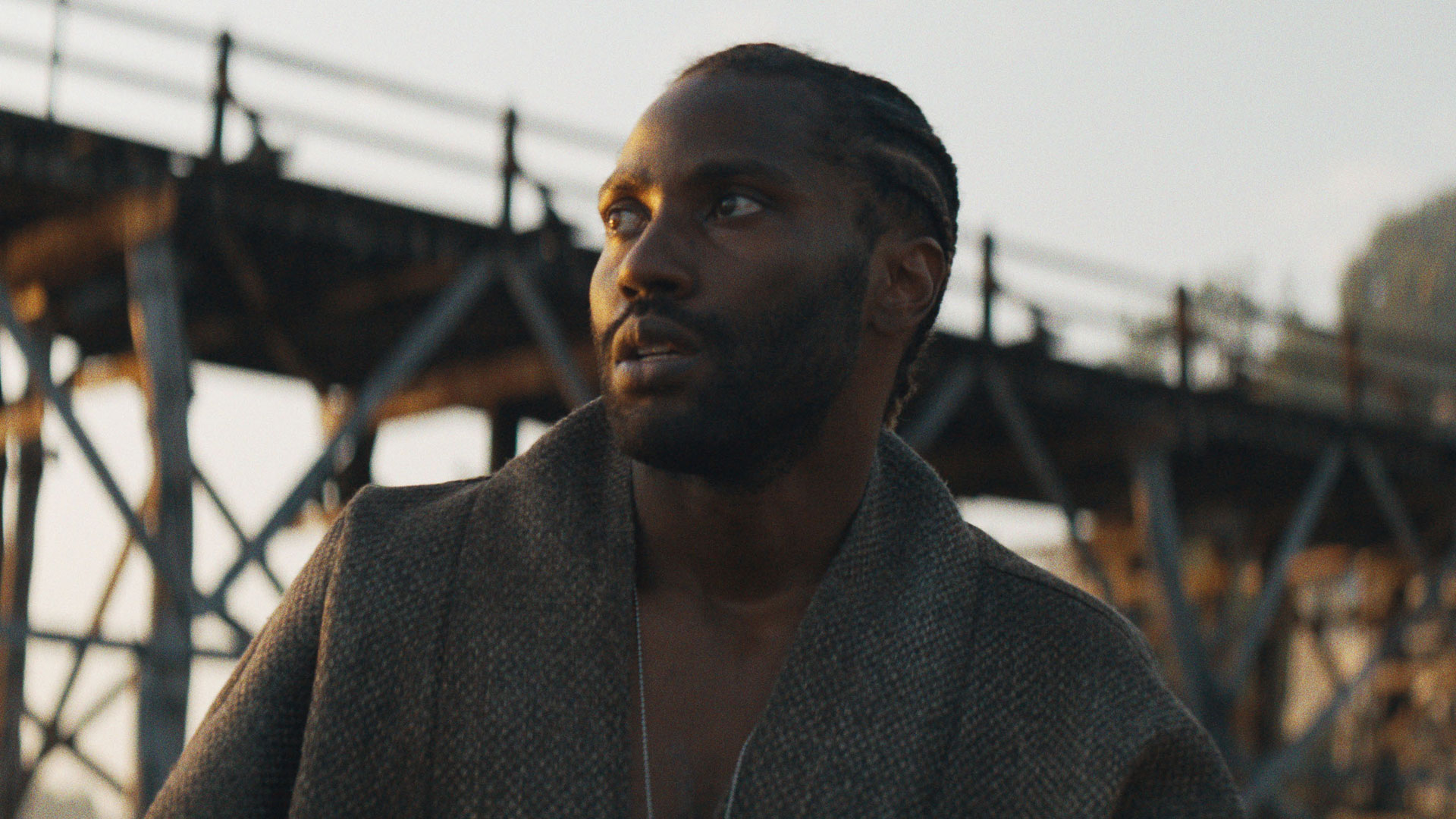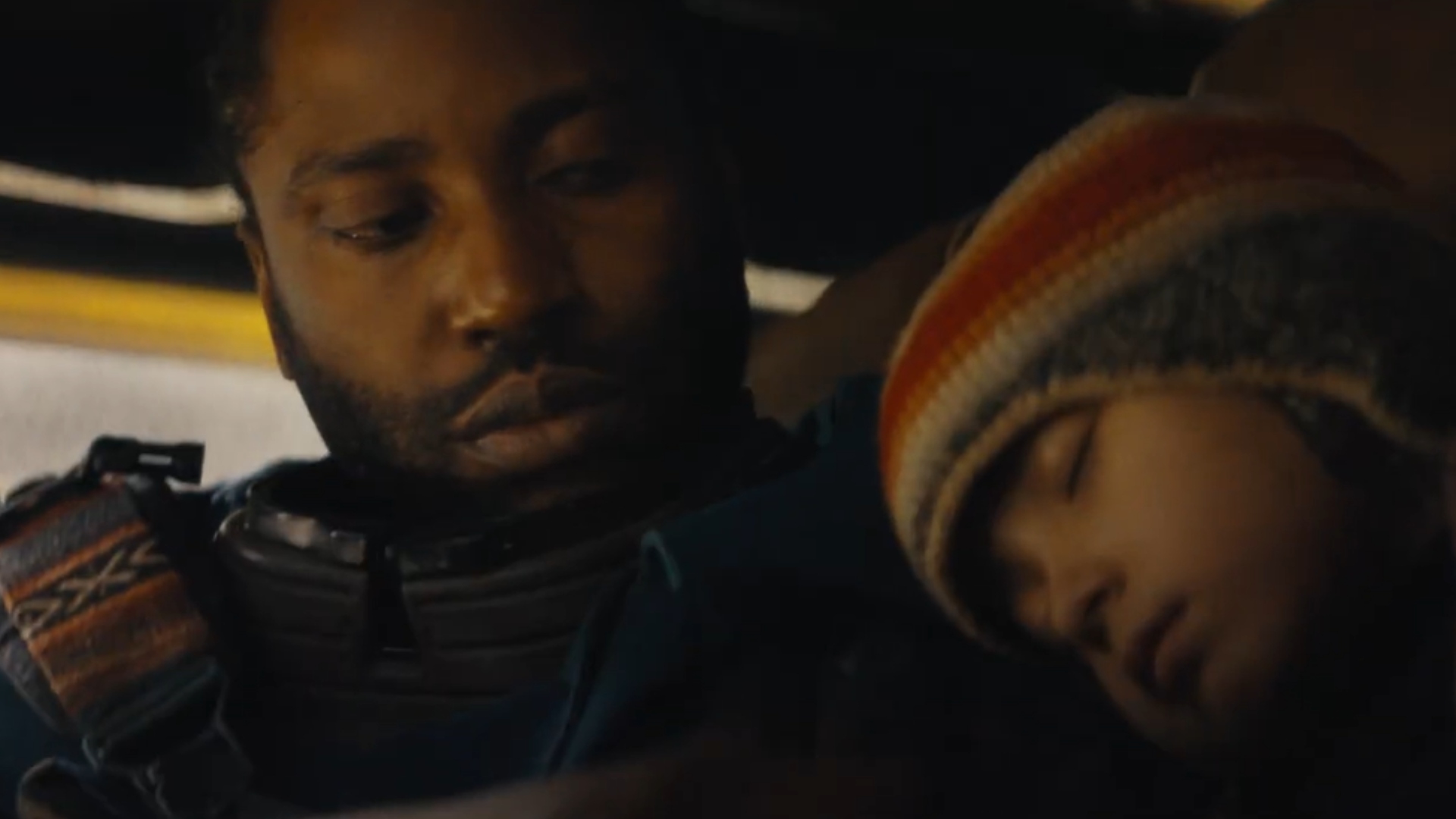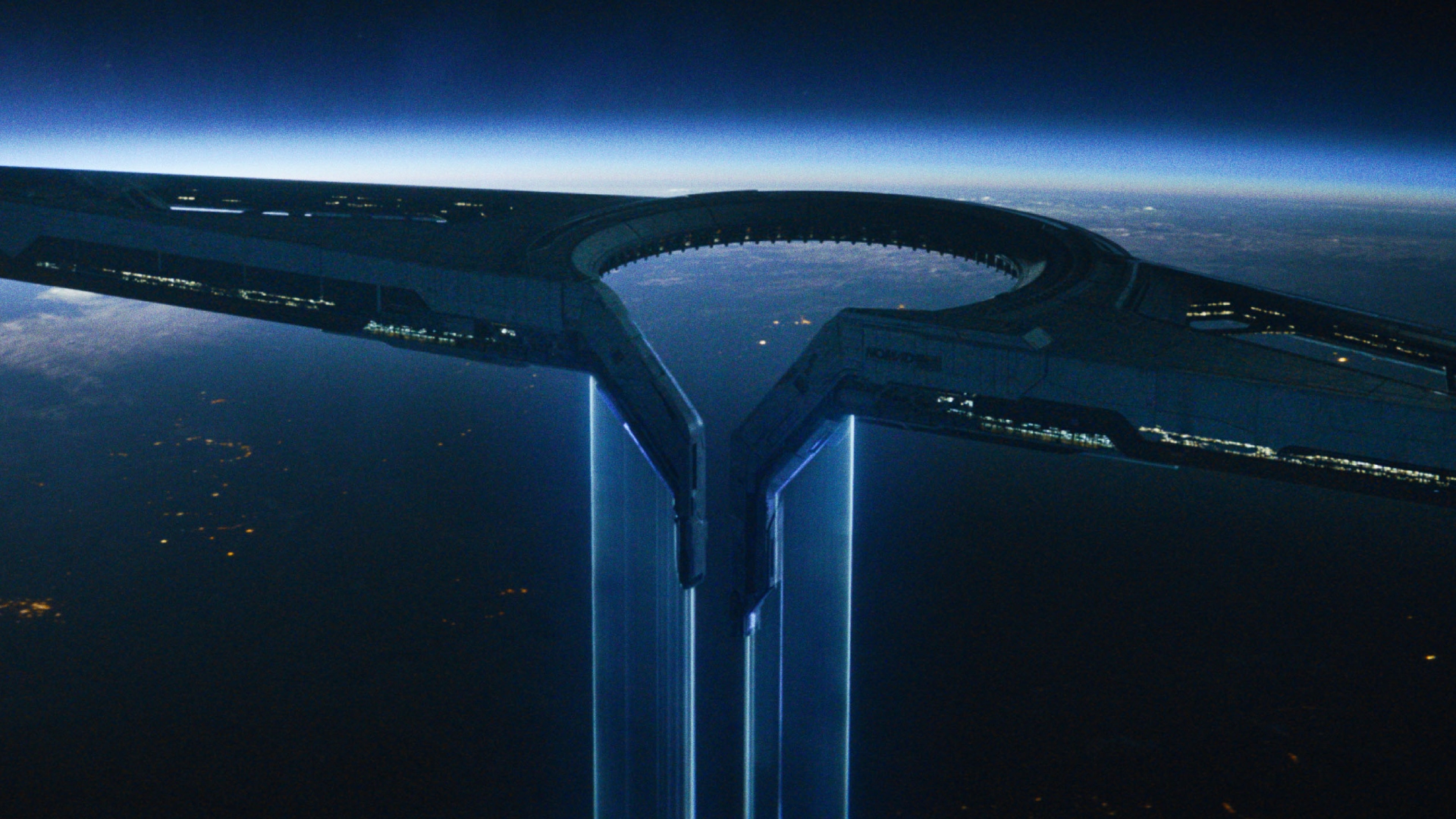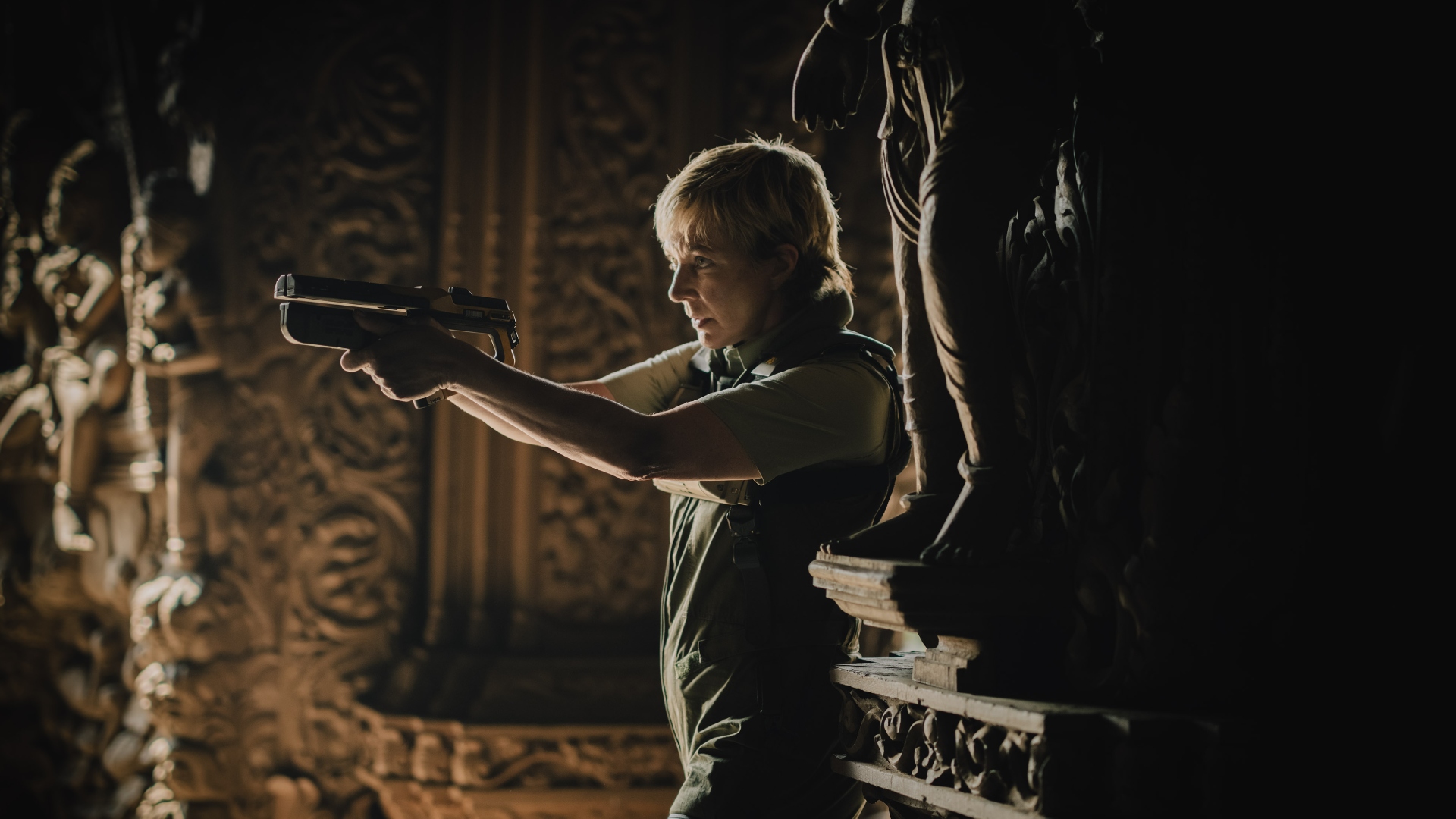Gareth Edwards’ new sci-fi epic The Creator is here to revolutionize how blockbusters are made
Exclusive: We speak to Rogue One director Gareth Edwards about his new sci-fi epic The Creator, and why we should all be thinking about the threat AI may pose

Gareth Edwards likes to play a game when he’s traveling. The visionary director behind Godzilla and Star Wars prequel Rogue One enjoys looking around new places and imagining them through a sci-fi lens.
Say, for example, where you might see an ordinary person walking by, he may be imagining them as a robot. When GamesRadar+ meets the unassuming director, he sheepishly reveals that it was this "silly game" that helped him come up with the premise of his new sci-fi epic The Creator.
"I really wanted to do a robot film at the time," he recalls about visiting Vietnam a few years ago, "so I was doing that silly little game in my head of just picturing people as robots and seeing what happened. I saw a Buddhist monk walk through a temple and was picturing him as a robot, [and thought] 'Oh my God, that's really interesting: why would a robot be a monk?'"
Edwards adds, giving a glimpse into his creative process, that this experience got him really excited about the combination of "spirituality with this science-fiction robot put on top of [it]." This, coupled with his love of Vietnam War movies like Apocalypse Now, gave him the beginnings of an idea.
"You picture a war situation and robots and I just thought, ‘I've not seen this in a science-fiction film,'" he continues. "I've seen taking the Vietnam War and putting it into space with Aliens and Avatar. But the idea of taking science-fiction and putting it on the paddy fields of Vietnam? You're always looking for a gap on the Blu-ray shelf that you can wedge a new film in. There’s so few gaps in science-fiction because everyone's done nearly everything, so I got really excited and thought, 'Oh my God, this could be something.'"
Moral questions

That kernel of an idea grew into The Creator, an epic tale of what it means to be human amid the growth of artificial intelligence. The film imagines an alternate reality where humans accepted AI into their lives decades ago, only to watch it grow into something much more sophisticated until the unthinkable happens and a nuclear bomb is dropped.
The fall-out sees humanity at war with AI – or the "simulants" – who have mostly moved to Asia where they’ve not yet been outlawed and their mysterious creator is in hiding.
Bringing all the latest movie news, features, and reviews to your inbox
Edwards is well aware that exploring artificial intelligence in cinema is a well-trodden path, and one that’s been occupied too by stone-cold genre classics like Terminator and Blade Runner. His approach then was to come at the topic from a slightly different tack.
"I think if we were doing anything different, it was trying to humanize them," he explains. "I think in a lot of these kinds of movies, the robot or AI is a little bit cold, not quite like us. And I really liked the idea that AI or the dilemma of this film is that they 100% feel they're human."
This moral gray area is explored through ex-special forces soldier Joshua (played by Tenet’s John David Washington) who’s tasked with finding the architect of the AI and destroying the new super weapon they’ve created. However, things get very complicated when he discovers the weapon has taken the form of a child named Alphie (played by newcomer Madeleine Yuna Voyles).
What he chooses to do next fuels the dilemma at the heart of this movie. "Joshua can end the war, he can wipe out AI, and all he has to do is kill this kid. So, they're on this odyssey through this futuristic war zone, where he knows that the end is going to result in this kid's execution. As they go, he starts to question everything and feels, 'Is this real? Is this right? Can we switch these things off? And is that murder – or is that just like closing a laptop?'"
Buzz word

When Edwards first started working on the project a few years ago, he couldn’t have known how timely it would become when it reached cinemas in 2023. AI today has become part of our everyday conversations, not only in discussions about the growth of ChatGPT, but also it’s been an ongoing debate in the WGA and SAG-AFTRA strikes that have hit Hollywood.
The promotion trail for the movie has been an eye-opening experience for him though, including one "surreal" moment where he was interviewed by a robot. It’s an experience that confirmed to him how it's not long until humanoid versions of AI are going to be perfected. "There are all these dilemmas in [The Creator] that I was expecting to never get in our lifetime, but sort of with things like ChatGPT they’ve crept up on us."
The Creator has been at the forefront of some of the hostility growing against AI too after the film's marketing saw life imitating art. At a recent American football game, fans were surprised to see simulants sitting among them in the crowd. Reactions ranged from humor to outright terror, and Edwards admits he was a bit surprised by the response.
"It was a very aggressive reaction," he laughs when we bring it up. "Someone sent me a little commentary about the NFL and they were really aggressive. It makes me think, 'Oh my God, is this what's gonna happen when we get AI in human form?' We respond to human-looking things, we're going to make AI in human form. It's inevitable. Then as soon as you do that, some people are going to reject them and some people are going to treat them like crap."
Money talks

However, just as important as opening up the discussion about AI was for The Creator, the movie was also about approaching blockbuster filmmaking from a new angle. While the director may be a household name for the franchises he’s been linked to, like Rogue One and Godzilla, it was actually his first film Monsters that had the most impact on The Creator.
Shot on a shoestring budget with just a few cast and crew, his 2010 debut is a masterclass in sci-fi filmmaking. And while The Creator’s $80 million budget is a far cry from that micro-feature, it’s also anomalous in a crowded field of blockbuster films that frequently cross into the hundreds of millions mark. While Edwards is reluctant to say he’s trying to "shake up" this approach, he’s passionate about challenging that status quo.
"When we were developing the movie, we had a tour of a virtual reality studio, in case it was useful for the film," he explains. "I looked on the wall and there was a poster and it was basically the process of making a film broken down into like a diagram, what everyone's job is, what they do, the screenplay, and the whole process of making the film.
"I looked at it like, 'It's weird they've got this poster because everyone knows this who is in the industry' and the guy who owns the place went, 'Oh, I see you looking at the poster' and I was like, 'Yeah,' and he goes, 'That's over 100 years old.' And I suddenly realized, 'Have we not changed this process in 100 years?' Like with all these breakthroughs in camera technology, and digital computers, and editing, we still do exactly the same as we did at the turn of the century."
For Edwards, it’s pretty simple: "I think there might be better ways." The Creator is an experiment at this. The film was shot as much as possible on location across places like Japan, Thailand, Indonesia, and Cambodia, allowing for smaller shoots and a more freeing filmmaking process. Then when it was all done, the work on VFX started as Industrial Light & Magic (ILM) built on top of the footage.
It’s a novel approach, and not necessarily one Edwards is suggesting become a blueprint for how shoots should be run. Instead, he says, this process was simply to suggest there are more ways to make these kinds of movies, including, intriguingly, the use of AI in filmmaking. But probably quite aptly for the man behind an emotional and poignant movie about artificial intelligence, he doesn’t view this with concern, but instead with optimism.
"I'm excited about the future," he smiles. "I see opportunities with things like this. It shouldn't cost hundreds of millions to make a film because it's then unfair, no one can really do this sort of stuff. I feel like the best case scenario [and] my secret hope is that these new digital tools will allow kids in their bedroom or in the garage to go make movies that have anything in their head and it will cost very little. There might be this massive explosion like an amazing cinema because people can take big risks because no one's going to lose loads of money." With the future of filmmaking facing so many unknowns, Edwards' vision is bright. Now it's just time for the studios to listen.
The Creator is cinemas now. For more on the sci-fi epic, check out our conversations with Edwards about using guerilla filmmaking techniques and why he took a break from directing after Rogue One.

I’m the Deputy Entertainment Editor here at GamesRadar+, covering TV and film for the Total Film and SFX sections online. I previously worked as a Senior Showbiz Reporter and SEO TV reporter at Express Online for three years. I've also written for The Resident magazines and Amateur Photographer, before specializing in entertainment.


